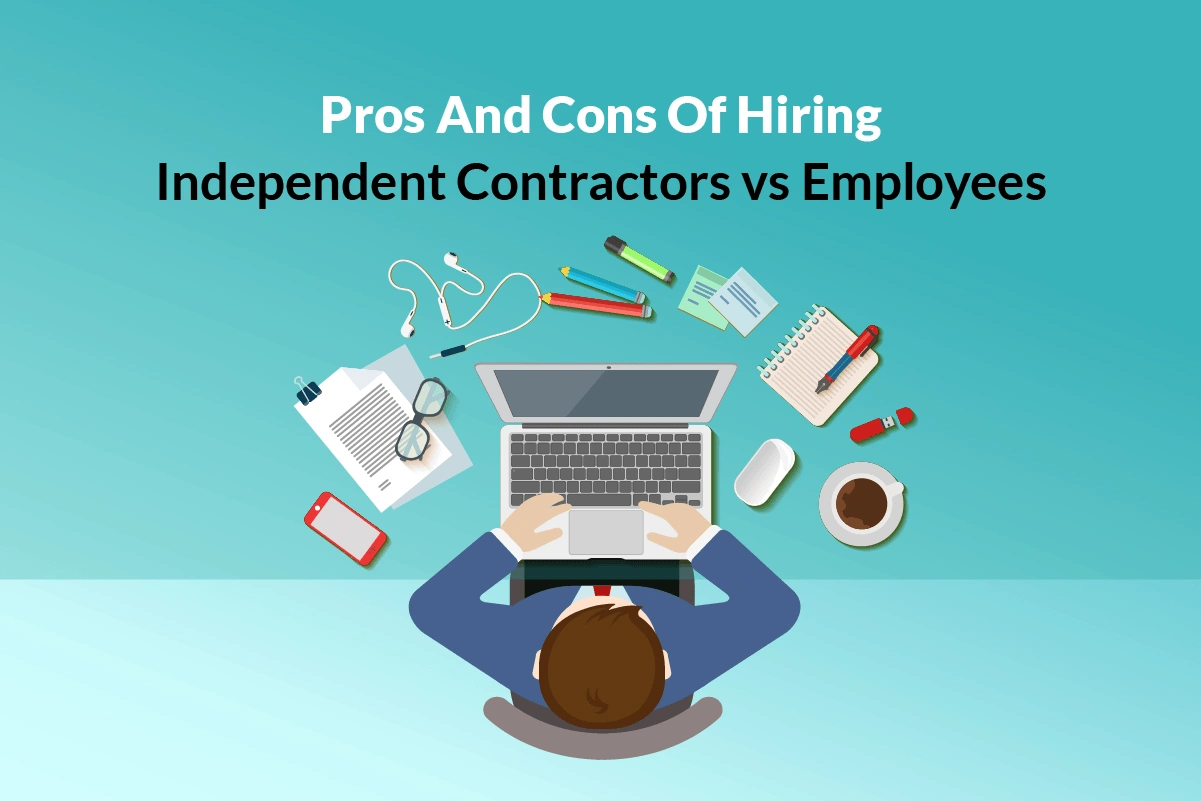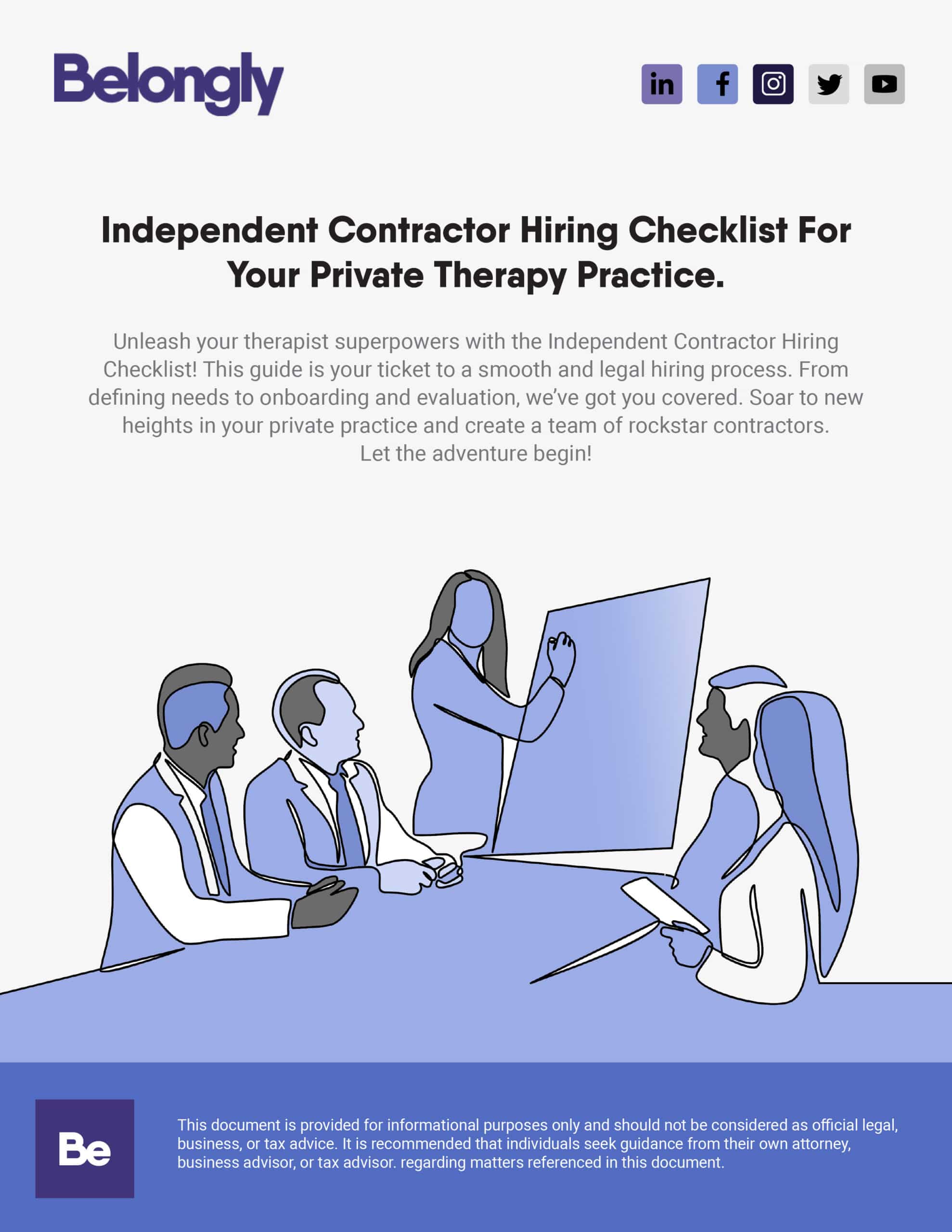Hiring Someone As An Independent Contractor

The gig economy continues to reshape the American workforce, with more companies opting to engage independent contractors for specialized skills and project-based work. This trend presents both opportunities and challenges for businesses and individuals alike, demanding a clear understanding of the legal and practical considerations involved in hiring someone as an independent contractor.
This article will delve into the intricacies of engaging independent contractors, outlining the key steps, legal compliance requirements, and potential pitfalls that businesses need to be aware of.
Understanding the Independent Contractor Relationship
At its core, an independent contractor relationship differs significantly from that of an employer-employee relationship. The defining factor lies in the degree of control exercised by the hiring entity.
According to the Internal Revenue Service (IRS), a worker is generally an independent contractor if the payer has the right to control or direct only the result of the work and not what will be done and how it will be done. This distinction carries significant implications for taxes, benefits, and legal liability.
Key Considerations Before Hiring
Before engaging an independent contractor, businesses must carefully assess whether this arrangement is truly appropriate. Misclassifying an employee as an independent contractor can lead to serious legal and financial repercussions.
The IRS and the Department of Labor have specific guidelines for determining worker classification, focusing on factors such as behavioral control, financial control, and the relationship of the parties.
Businesses should consult with legal counsel to ensure compliance. Using standardized forms and checklist is recommended for ensuring you are following state and federal laws.
The Hiring Process: Essential Steps
The process of hiring an independent contractor should involve several key steps to protect both the business and the contractor.
First, a well-defined contract is crucial. This agreement should clearly outline the scope of work, payment terms, deadlines, intellectual property rights, and termination clauses. It should clearly state they are being hired as an independent contractor.
Second, verify that the contractor has their own liability insurance. In most instances, you are not responsible if something occurs that is not in the contract.
Finally, the business should avoid treating the contractor like an employee.
This means refraining from dictating their work schedule, providing them with employee benefits, or closely supervising their day-to-day activities.
Tax Implications and Legal Compliance
Unlike employees, independent contractors are responsible for paying their own self-employment taxes, including Social Security and Medicare. Businesses are not required to withhold taxes or provide benefits.
However, businesses are required to file Form 1099-NEC to report payments of $600 or more to independent contractors during the tax year.
Failure to comply with these tax regulations can result in penalties and fines. It is best to seek legal and professional advice.
Potential Challenges and Mitigation Strategies
While hiring independent contractors can offer flexibility and cost savings, it also presents potential challenges. One of the most significant risks is misclassification.
Misclassification can expose businesses to lawsuits, back taxes, penalties, and reputational damage. To mitigate this risk, businesses should conduct regular audits of their worker classifications and consult with legal professionals.
Another challenge is managing the relationship with independent contractors effectively. Clear communication, well-defined expectations, and a fair and transparent payment process are essential for fostering a positive working relationship.
It is highly recommended to create a detailed contract before the project begins. This will help reduce misunderstandings and liability.
The rise of the gig economy shows no signs of slowing down, making it imperative for businesses to navigate the complexities of engaging independent contractors with diligence and awareness. By understanding the legal requirements, implementing sound hiring practices, and proactively addressing potential challenges, businesses can leverage the benefits of this flexible workforce while minimizing their risks.
Staying informed about evolving regulations and seeking expert advice are crucial for maintaining compliance and ensuring a mutually beneficial relationship with independent contractors.
















:max_bytes(150000):strip_icc()/independent-contractor.asp-FINAL-6904c017dfbf4da18e90cf4db4af91e7.png)

